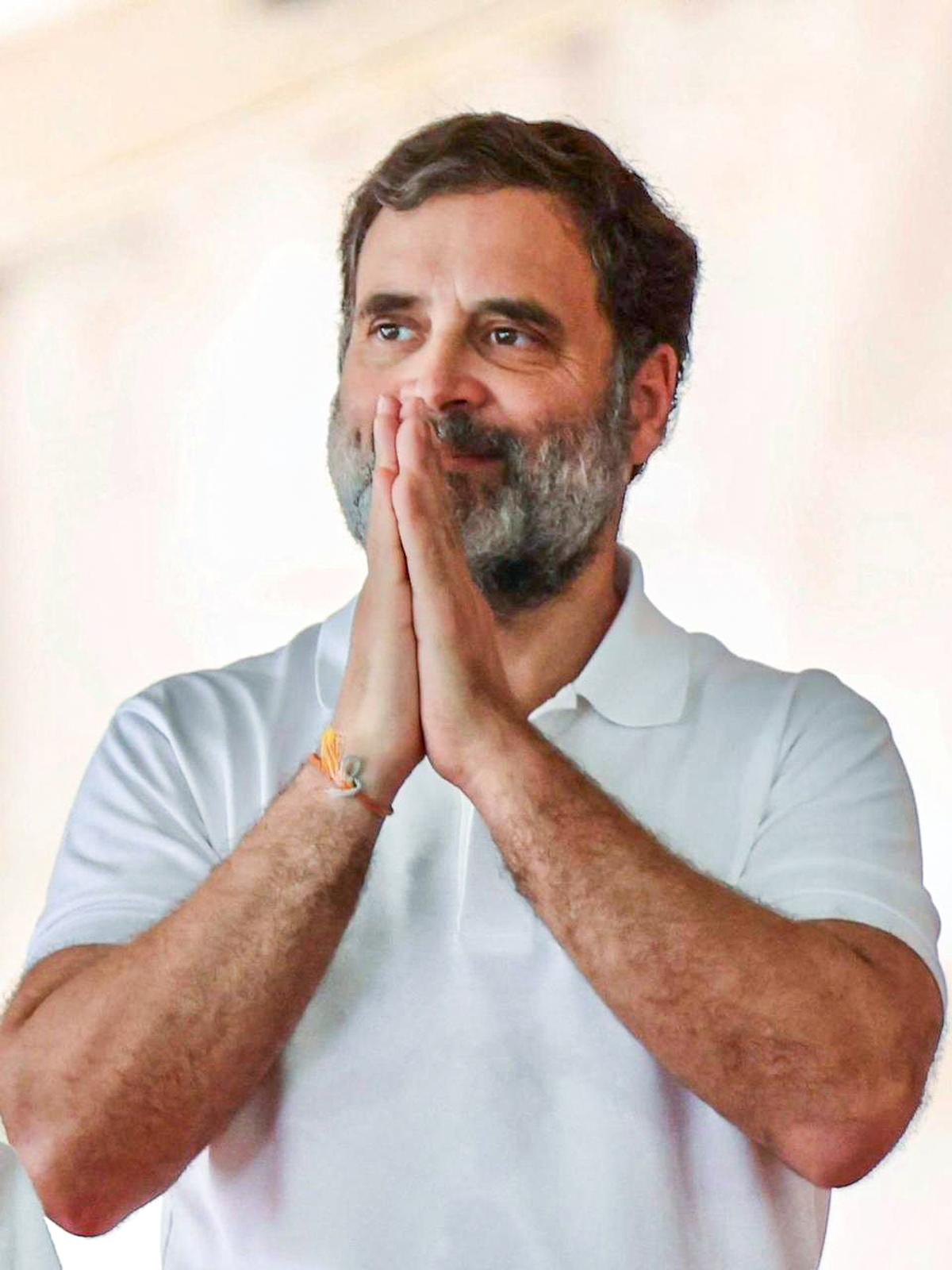Rahul Gandhi’s Pledge to Revive Congress in Five Years: A New Era of Determination
As we near the end of 2024, the Indian political landscape is abuzz with speculation about the future of various leaders and parties. One of the most discussed figures remains Rahul Gandhi, who has been at the helm of the Indian National Congress (INC) for over two decades. Despite multiple electoral setbacks under his leadership, Rahul has recently made headlines with his renewed commitment to reinvent the Congress within five years.
This bold pledge has sparked debates within political circles and among the public. The question remains: can Rahul Gandhi lead the Congress party to a resurgence, or will his efforts falter under the weight of past failures?
Rahul Gandhi’s Journey in Politics

Rahul Gandhi officially entered Indian politics in 2004, contesting and winning his first parliamentary election from the Amethi constituency. As a member of the Gandhi-Nehru dynasty, Rahul was viewed as a natural successor to his mother, Sonia Gandhi, who served as Congress President for nearly two decades.
However, Rahul’s leadership has been a subject of criticism. Under his tenure, Congress suffered significant losses, including its worst-ever performance in the 2014 and 2019 general elections. These defeats saw the Bharatiya Janata Party (BJP) under Prime Minister Narendra Modi consolidating power, reducing Congress to a mere shadow of its former glory.
Despite these setbacks, Rahul has shown resilience. His “Bharat Jodo Yatra,” a nationwide march aimed at uniting the country, received widespread public attention and rekindled some enthusiasm among party workers.
The Five-Year Pledge
Recently, Rahul Gandhi announced his ambitious plan to transform Congress into a winning force within the next five years. This transformation involves:
Structural Reforms
- : Introducing internal democracy within the party, ensuring merit-based promotions, and empowering grassroots workers.
Youth Involvement
- : Encouraging young leaders to take charge and giving them prominent roles in shaping party strategies.
Focused Campaigns
- : Concentrating on key issues like unemployment, inflation, education, and healthcare to reconnect with the electorate.
Digital Outreach
- : Strengthening the party’s presence on digital platforms to effectively counter the BJP’s extensive social media campaigns.
Rahul’s vision for Congress is rooted in inclusivity, aiming to rebuild its credibility as a party for all Indians.
The Priyanka Factor
While Rahul remains a central figure in Congress, his sister, Priyanka Gandhi Vadra, has also emerged as a significant player. Priyanka, often compared to her grandmother and former Prime Minister Indira Gandhi for her charisma, has been actively involved in Congress campaigns, particularly in Uttar Pradesh.
Her victory in Wayanad during the Lok Sabha elections further cemented her position within the party. Political analysts view her as a potential alternative leader for Congress, sparking discussions about a possible shift in leadership dynamics.
Astrologers and political observers alike have speculated about her prospects. According to astrologer Shweta Chauhan, Priyanka’s horoscope indicates several powerful “Raj Yogas,” suggesting potential success in leadership roles. Her entry into Parliament has added a new dimension to Congress’s strategy, and her collaboration with Rahul is seen as a key element in the party’s revival plan.
Challenges Ahead

Reviving Congress is no small task, especially given the following challenges:
BJP’s Dominance
- : With Prime Minister Modi at the helm, the BJP continues to dominate the political narrative in India. The party’s focus on nationalism and development has resonated strongly with voters.
Internal Factionalism
- : Congress has long struggled with infighting and a lack of unity among its leaders. Resolving these issues is crucial for its revival.
Public Perception
- : The perception of Congress as a party of privilege and dynastic politics remains a significant hurdle. Rahul must work to change this narrative.
Electoral Strategy
- : Forming alliances and focusing on regional issues will be essential to regain voter confidence, especially in states where Congress has lost ground.
Public Sentiment and Expectations
Rahul’s five-year pledge has sparked mixed reactions. Supporters view it as a sign of his determination and commitment, while critics dismiss it as yet another hollow promise.
Congress workers, however, appear cautiously optimistic. For them, the success of this transformation is not just about electoral victories but about rebuilding the party’s ideological core and reconnecting with the grassroots.
Conclusion: A Turning Point for Congress?
As 2025 approaches, Rahul Gandhi faces the challenge of a lifetime. His vision for a reformed and revitalized Congress will require unwavering dedication, strategic thinking, and the ability to inspire trust among the electorate.
Priyanka Gandhi’s growing influence within the party adds another layer of intrigue to the Congress revival story. Together, the Gandhi siblings have the opportunity to script a new chapter for their party, but the road ahead is fraught with obstacles.
Whether Rahul’s five-year plan succeeds or fails, it will undoubtedly shape the future of Indian politics. For Congress, this moment represents not just a test of its leadership but a fight for its very survival.

 Kareena Kapoor With Police After Saif Ali Khan Incident share her Statement
Kareena Kapoor With Police After Saif Ali Khan Incident share her Statement



